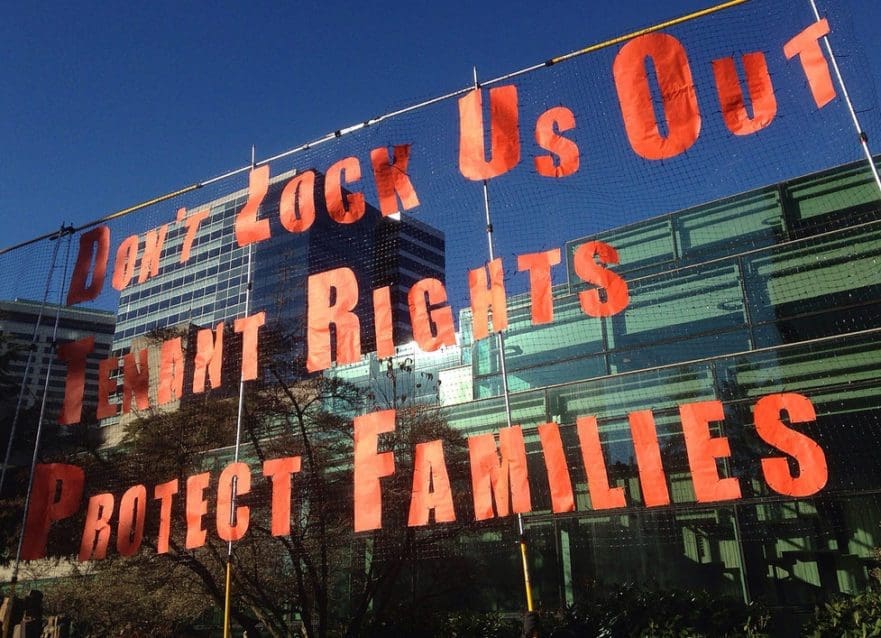Californians are getting slammed by a devastating, ongoing housing affordability crisis. They need help now. Top experts at prestigious colleges such as USC, UCLA, UC Berkeley, and Columbia University agree that rent control is a key tool to stabilize the lives of middle- and working-class renters. It’s why we need the Rental Affordability Act.
Earlier this week, the editorial board at The Orange County Register made the usual case against rent control and the Rental Affordability Act, a proposed 2020 ballot measure pushed forward by Housing Is A Human Right, the housing advocacy division of AIDS Healthcare Foundation. The editorial, however, overlooked key studies recently published by USC, UCLA, UC Berkeley, and Columbia University.
In each of them, experts find that rent control will help stabilize a housing market that’s severely broken—and these hard times call for solutions that can bring relief to renters now. Housing Is A Human Right and AIDS Healthcare Foundation are taking an urgent, multi-pronged approach to address the housing affordability crisis through the “3 Ps”: protect renters, preserve communities, and produce housing. Rent control, and therefore the Rental Affordability Act, will protect renters.
The Rental Affordability Act allows local governments to expand their rent control policies to housing that is more than 15 years old; allows local governments to limit the rent increase for a new tenant who moves into a vacated unit; and exempts the owner of one or two homes from any rent control law.
Columbia University Business School Professor Stijn Van Nieuwerburgh notes: “In a world with rising urbanization, the high cost of housing in cities has surfaced as a daunting policy challenge in cities around the country and the world. Households of different ages, incomes, and wealth are affected differently by changes in policy, but our study finds that as policymakers continue to try to expand affordable housing, rent control policies can be a useful tool and a bulwark for residents struggling with the cost of living in the face of rising income risk.”
University of Southern California Professor Manuel Pastor, co-author of the USC Dornsife’s Rent Matters report, writes: “The housing crisis requires a range of strategies, [and] moderate rent regulation is a useful tool to be nested in broader strategy. It has fewer damaging effects than are often imagined, it can address economic pain, and it can promote housing stability. And housing stability matters because it is associated with physical, social, and psychological well-being; higher educational achievement by the young; and benefits for people of color.”
And Dr. Stephen Barton, a former housing director for the City of Berkeley and co-author of the UC Berkeley research brief, notes: “When the housing market is as dysfunctional as it is in many parts of California, tenants are effectively subsidizing landlords with rent payments above what a fully competitive market would allow landlords to charge.”
We urge editorial writers and reporters to read these illuminating reports, and include their findings as a counterpoint to anti-rent control arguments made by the real estate industry and its lobbying groups such as the California Apartment Association and the California Association of Realtors.
From the perspective of grassroots activists, who witness the damaging impacts of the housing affordability crisis daily on the frontlines, the real estate industry and its lobbyists are not truly interested in addressing the crisis and helping Californians. They will try to frame their arguments that way, but, in fact, they are most concerned about protecting, and enhancing, their outsized profits, no matter the consequences to California’s 17 million renters.

